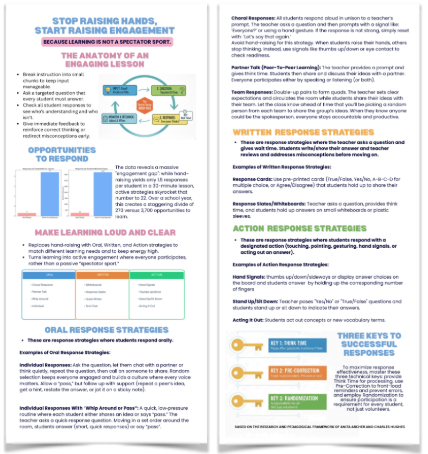Cognitive Load Theory
"A theory for understanding how learners interact with tasks, based on the evidence that working memory is limited and affected by the environment, the nature of the task, and student prior knowledge."
Harnessing the Science of Learning, Page 35
Podcast Spotlight: Melissa & Lori Love Literacy
In this podcast episode, Dr. Nathaniel Swain discusses the science of learning, emphasizing its connection with the science of reading.
He shares:
key mindset shifts for teachers
the significance of coherent curriculum planning
practical strategies like using mini whiteboards and advanced organizers to enhance student engagement and understanding
He also highlights the need for responsive whole-class instruction and the importance of closing learning gaps early in students' educational journeys.
Article: Principles of Instruction—
Research-Based Strategies That All Teachers Should Know
Barak Rosenshine’s
10 Principles of Instruction
Nathaniel Swain’s 5 Principles for
Optimising Your Classroom Canvas
Classroom Routines For
Reducing Cognitive Load
Mini-Whiteboards: Science of Learning-Aligned Engagement Norms
Stop Raising Hands, Start Raising Engagement
Inclusive By Design: Building Classrooms that Work for Every Student
This resource provides practical strategies across seven cognitive domains to help make learning more inclusive. Grounded in Universal Design for Learning and equity, it offers flexible instructional, environmental, and assessment approaches that reduce barriers, manage cognitive load, and support success for all students.
Back to:













